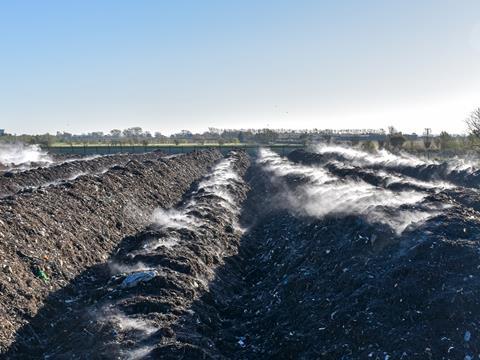
Tesco, M&S, and WWF are some of the first industry and packaging experts to be revealed as advisory board members for Compostable Coalition UK’s ‘Closing the Loop for Compostable Packaging’ research project.
The project, which is funded by UKRI’s £60 million Smart Sustainable Plastic Packaging Challenge, is assessing whether existing collection and treatment streams in the UK can collect, sort, and recycle compostable packaging. It aims to evaluate the potential of replacing hard-to-recycle plastic packaging with compostable alternatives and ensuring that they can be treated and organically recycled at end-of-life.
Tea bags, coffee pods, packaging for fresh produce and food service, and other hard-to-recycle packs are set to be assessed against WRAP and its Plastics Pact’s vision for the most sustainable compostable packaging applications. Members of the Advisory Board will apparently ensure that the research project is objective, empirically robust, and supports key stakeholders’ priorities and interests, including the attainment of the UK Plastics Pact’s compostability and circularity goals.
Other participating organisations include OPRL and Ocado Retail.
“We are delighted to have assembled such a formidable group of packaging and wider industry experts to join our research project,” said Tomos Davies from Compostable Coalition. “Their insights and expertise will prove invaluable in finessing the research project as well as ensuring the objectivity and robustness of our research trials. With the Advisory Board’s expert input, we are confident the project’s findings can successfully signpost industry and Governments towards the necessary policy and behavioural interventions.”
“At Ocado Retail, we’re committed to continue innovating to ensure our packaging is the best it can be for the planet,” Laura Fernandez, senior packaging and sustainability manager, continued. “I’m delighted to join this project with industry colleagues to help determine the possible benefits of compostable packaging and the role it can play in the circular economy when used appropriately and when it is supported by an effective collection, sorting and recycling infrastructure.”
“At M&S, we know that meeting our commitments to customers on plastic will require us to explore all options,” said Sam Clough, senior packaging technologist. “Plastic waste is a difficult problem to solve and compostables could be part of the solution. But their lifecycle is complex, and the benefits are hard to validate. I look forward to supporting this important initiative and being able to critique the findings and help shape the future of compostables on behalf of our customers.”
Paula Chin, senior policy advisor, Consumption at WWF, stated: “Finding solutions to tackle the plastic pollution crisis remains a pressing issue and considering what role compostable packaging can play is critical. Exploring the potential of its contribution to a circular economy is an opportunity which WWF is supportive of, and I look forward to reviewing the emerging findings regarding the environmental benefits and the potential wider positive impacts on soil health.”
“In the absence of a dedicated forum to further examine, challenge and critically reflect on the potential of this industry to support the attainment of Plastics Pact targets, Compostable Coalition UK’s research project offers an opportunity to plug some of the missing evidence gaps and to signpost further areas in need of research or examination, including on-pack labelling and consumer behaviour,” concluded Margaret Bates, executive director at OPRL.
Brands and packaging producers are increasingly turning towards compostable solutions to face the plastic waste crisis. While TotalEnergies Corbion and Danimer Scientific, Inc. have received TUV certification for their home compostable coffee pods, Huhtamaki North America is providing Sporting Kansas City’s home stadium, Children’s Mercy Park, with compostable and recyclable packaging for use at its US Major League Soccer games.
On the other hand, Packaging Europe previously spoke to Laura Collacott from the Ellen MacArthur Foundation about the life cycle of compostable packaging – and how, in her view, it remains a single-use solution.
If you liked this article, you might also enjoy:
McKinsey on whether or not on-pack sustainability claims affect consumer spending
A deep dive into the most important packaging sustainability trends and solutions














No comments yet